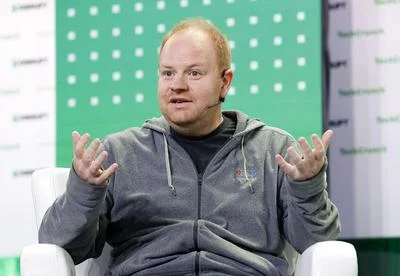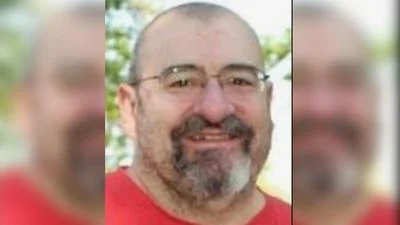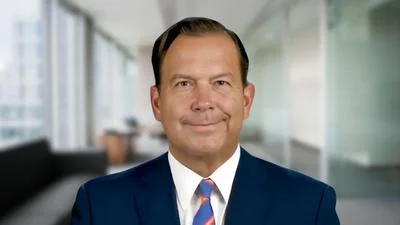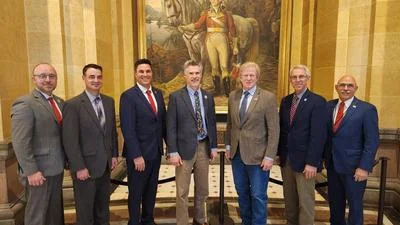Illinois Governor's Office issued the following announcement on June 28.
Surrounded by lawmakers of both parties and representatives from the business community and labor movement, Governor JB Pritzker signed Rebuild Illinois into law, the most robust capital plan in Illinois history and the first in nearly a decade.
The historic plan was passed with vast bipartisan supermajorities and will make $45 billion worth of investments in roads, bridges, railways, universities, early childhood centers and state facilities like the crime lab and veterans' homes over the next six years, creating and supporting an estimated 540,000 jobs over the life of the plan and revitalizing local economies across the state.
"With this historic $45 billion capital plan, we're fixing decades-long problems, creating good jobs, improving communities for the next generation - and doing it together, across party lines," said Gov. JB Pritzker. "The Rebuild Illinois plan transforms our state's approach to transportation infrastructure, finally treating our roads, bridges, and railways like 21st century investments and not relics of the past. We're also making critical investments in our higher education institutions, our crime lab and veterans' homes, early childhood centers, and expanding broadband access to communities across Illinois. With these investments, we're creating and supporting hundreds of thousands of new jobs in our state. This is more than an infrastructure plan. This is a job creation plan the likes of which our state has never seen."
"This bipartisan success sends a strong message that Illinois is moving forward, and we are moving forward together," said Senate President John Cullerton. "Because of this effort, there will be better roads, better bridges, better schools, better health and better opportunities for the people of this great state. This has been a team effort and it's been an honor to be part of it."
"I am proud of Governor Pritzker's leadership and the bi-partisan support behind Rebuild Illinois. We are delivering on the promise to improve the lives of people across our state," said Lt. Gov. Juliana Stratton. "Rebuild Illinois is an investment in Illinois, its people and future generations of Illinoisans."
"As Minority Spokesperson, I would like to thank Governor Pritzker and Transportation Committee Chairperson Sandoval for the bi-partisan spirit in which this initiative came together," said Sen. Don DeWitte (R-St. Charles). "The sustained investment in our transportation & vertical infrastructure remains vital to ensure that our state continues to be attractive and viable to our residents, business partners and future investors in our state's economy."
"Rebuild Illinois will revitalize communities across our state and provide our residents with the safe and reliable infrastructure they depend on," said Sen. Toi Hutchinson (D-Chicago Heights). "This $45 billion capital plan was crafted with bipartisan, bicameral support and will put over half a million people to work. We can all be proud of the historic path we are paving for our state and for our future."
"With this law, communities across the state gain needed economic development and we become more competitive," said Sen. Terry Link (D-Indian Creek). "This investment in Illinois was overdue. A lot of people have waited a long time for this day to arrive. I'd like to thank my colleagues and Governor Pritzker for making it happen."
"I'm glad to be a part of an effort that will create jobs, economic development and bring much-needed funding to our city," said Sen. Tony Munoz (D-Chicago). "This legislation has the potential to bring tourism and business to areas across the state that need it the most."
"We spent months traveling this state and learned more than I thought possible about the infrastructure needs in various communities," said Sen. Martin A. Sandoval (D-Chicago). "The result is a comprehensive package that takes into account the testimony we heard and fairly invests in communities in every corner of the state."
"It was a, honor and a privilege to be Chairman of this committee and to be able to pass this $45 billion capital plan, the largest in the history of the state of Illinois," said Rep. Luis Arroyo (D-Chicago), chairman of the House Appropriations-Capital committee. "This plan shows what's possible when both sides of the aisle come together with real solutions to do what's right for people in all of our communities. This plan helps rebuild our crumbling roads, bridges and buildings - the critical infrastructure we all rely on in this state. Thank you to all members of the Capital committee and subcommittee."
"I am thrilled that this year's capital plan and will provide affordable housing, invest in environmental protections and improvements to health care infrastructure," said Rep. Greg Harris (D-Chicago).
"One of the most important things we can do for the future of Illinois is to maintain our place as America's transportation center," said Rep. Margo McDermed (R-Mokena). "This capital bill ensures we remain a vital hub in the nation's network of highways and bridges by injecting much-needed resources to bring Illinois' infrastructure into the 21st century."
"I am proud to join Gov. Pritzker, Sen. Link and our many dedicated advocates in communities that will benefit greatly from the gaming expansion package in Senate Bill 690," said Rep. Bob Rita (D-Blue Island), the lead gaming negotiator for the House Democrats. "This is a testament to bipartisan work in Springfield to create jobs and bring new entertainment and tourism dollars to areas that desperately need it around the state. Thank you to everyone who made this victory possible."
"Manufacturers need a modern infrastructure system to compete in today's global economy and this capital infrastructure program builds a bridge to the future. We applaud Governor JB Pritzker and lawmakers for making a game-changing investment in our infrastructure that improves Illinois' economic competitiveness," said Mark Denzler, president and CEO of the Illinois Manufacturers' Association. "Infrastructure creates jobs and allows for the efficient movement of people and products around the world. Rebuild Illinois also funds important career and technical education programs to help address the skills gap and workforce challenges facing manufacturers across Illinois."
"The Illinois Chamber applauds Governor Pritzker for his approval of this historic, bipartisan investment in our state's future," said Rebecca Mason, Executive Director of the Infrastructure Council at the Illinois Chamber of Commerce. "The Rebuild Illinois package, along with the "Lockbox Amendment" approved by Illinois voters in 2016, will ensure our transportation funds will repair our aging infrastructure. Additionally, its pro-business reforms, especially the data center tax incentive, will spur private investment in Illinois businesses and our local economies."
"The investment the State of Illinois is making in capital construction projects will have deep and lasting effects across the state," said Michael T. Carrigan, president of the Illinois AFL-CIO. "Fixing and improving the state's vital infrastructure is the obvious direct benefit, but the economic boost creating tens of thousands of jobs in our communities - small and large - will put us on a path to prosperity. Additionally, the investment will reverberate for many years into the future with the education and economic development opportunities a highly-functional infrastructure provides. Thanks to the hard work of Gov. JB Pritzker and members of the General Assembly for passing and signing a capital bill, the future looks bright for all of Illinois."
"This bill signing represents a historic investment in Illinois' future," said Bob Reiter, president of the Chicago Federation of Labor. "The Rebuild Illinois Capital plan will fix our crumbling roads and bridges, invest in our higher education system. upgrade our neglected state facilities and protect our state's environment. We are rebuilding the backbone of the Illinois economy and promoting a new era of prosperity for working people across this state. On behalf of the half a million working women and men represented by the Chicago Federation of Labor and its affiliates, I want to thank Gov. Pritzker, Speaker Madigan, President Cullerton, and the entire Illinois General Assembly for making this capital plan a reality."
"For far too long, Illinois' schools, roads and flood prevention systems have been allowed to crumble," said LiUNA Midwest Region Vice President John Penn. "But with Governor Pritzker's leadership and bipartisan legislative support, thousands of Illinois workers will rebuild Illinois' infrastructure, injecting millions into local economies and making our state a more attractive place to do business."
"On behalf of the diverse group of the over 20,000 women and men that make up the membership of the Chicago Laborers' District Council, I want to applaud Governor Pritzker and the leaders of the General Assembly for the bipartisan passage of the largest construction program in Illinois history," said Jim Connolly, business manager of LiUNA Chicago Laborers' District Council. "Rebuild Illinois will create hundreds of thousands of jobs and have a monumental impact on Illinois' economy for generations to come."
"By making this critically important investment in our transportation systems, we are keeping families safe and supporting the commercial activity that is the foundation of Illinois' economy," said Jim Sweeney, President-Business Manager of International Union of Operating Engineers Local 150. "This long-term sustainable funding will allow transportation agencies to plan projects well into the future, setting the stage for truly monumental advances in our state's infrastructure."
"The Illinois Capital bill will not only enrich the lives of construction workers throughout our state by providing consistent good paying jobs, but will also enrich the lives of all the residents of Illinois through safer roads and more functional efficient state and municipal buildings for use by the citizens of this great state," said John Spiros Jr., Business Manager / Secretary-Treasurer of Painters District Council 14.
"Our roads, bridges, transit providers, ports, rail systems and ability to grow bicycle and pedestrian accommodations have been neglected for too long," said Acting Illinois Transportation Secretary Omer Osman. "Because of Gov. Pritzker's leadership and the General Assembly's bipartisan support of transportation, IDOT is back in the business of building a premier transportation network that creates jobs and improves quality of life."
The Rebuild Illinois package consists of four bills: HB 62, appropriations for capital projects; SB 1939, revenue for horizontal construction; HB 142, bond authorization; SB 690, gaming expansion, including revenue for vertical construction.
A detailed fact sheet is attached, and an overview of key elements can be found below.
REBUILD ILLINOIS OVERVIEW
House Bill 62
Rebuild Illinois makes critical investments in infrastructure across the following areas, many of which will be subject to a rigorous process for determining projects and providing grants:
Transportation: $33.2 billion
- Over $14 billion for new roads in bridges:
- $10.4 billion for state roads and bridges
- $3.9 billion for local governments to rebuild their roads and bridges
- Nearly $11 billion for IDOT's Multi-Year Plan for roads and bridges
- $4.7 billion for mass transit, including the RTA (CTA, Metra and Pace)
- $1 billion for passenger rail, including Amtrak and other inter-city rail projects
- $558 million for aeronautics
- $492 million for the Chicago Region Environmental and Transportation Efficiency Program (CREATE)
- $312 million for grade crossing protection
- $150 million for ports
- $679 million for other transportation projects
- $2.9 billion for higher education, including deferred maintenance and new projects at public universities, private universities and community colleges
- $415 million for preK-12 school maintenance
- $111 million for early childhood education
- $4 billion for deferred maintenance and new projects at state facilities, such as the decrepit state crime lab
- $350 million for the State Capitol
- $867 million for environmental, conservation and recreation projects, including:
- $290 million for hazardous waste
- $110 million for water revolving fund
- $100 million for unsewered communities
- $92 million for ecosystem restoration
- $75 million for park and recreational facility construction
- $40 million for well plugging
- $35 million for land acquisition
- $31 million for flood mitigation
- $29 million for Illinois green infrastructure grants
- $23 million for Open Space Land Acquisition and Development
- $22 million for dam and waterway projects
- $20 million for conservation reserve enhancement
- $140 million for renewable energy projects, including solar and energy efficiency upgrades at state facilities and transportation electrification in low-income communities
- $400 million for statewide broadband expansion
- $20 million for Illinois Century Network
- $200 million for affordable housing
- $200 million for hospital and healthcare transformation
- $50 million for community health centers
- $15 million for human services grant program
- $594 million for community development
- $425 million for economic development
- $401 million for public infrastructure
- $112 million for education and scientific facilities
- $75 million for economically depressed areas
- $51 million for museums
- $50 million for libraries
- $50 million for emerging technology enterprises
- $50 million for the arts
- $25 million for an apprenticeship program
- $15 million for Minority Owned Business Program
SB 1939 provides revenues to fund the horizontal projects in the Rebuild Illinois capital plan.
Increases the motor fuel tax, which is sent to lockbox that exclusively funds critical transportation projects across the state:
- Raises the motor fuel tax per gallon from 19 cents to 38 cents on July 1, 2019 and indexes it to the Consumer Price Index. If the motor fuel tax had been indexed to inflation the last time it was raised, it would be 38 cents - another indication of Illinois' long failure to invest in needed maintenance of roads and bridges.
- Increases the special fuels tax (on diesel fuel, liquefied natural gas, or propane) by 5 cents per gallon. The current tax is 2.5 cents per gallon, in addition to the regular motor fuel tax. This increase will generate $78 million in new annual state revenue, which is dedicated to the Road Fund.
- Creates the Transportation Renewal Fund to receive the increased motor fuel taxes.
- The revenue realized from the 19-cent increase in the motor fuel tax in SB1939 will be split between three purposes: 48 percent will go to the State Construction Account Fund for use on state roads and bridges, 32 percent will go to units of local government through the motor fuel tax formula, and 20 percent will go to local transit districts.
- Allows Cook County municipalities to impose an additional 3 cent local motor fuel tax.
- Allows Lake and Will counties the same authority as DuPage, Kane and McHenry counties to impose a county motor fuel tax to be between 4 cents and 8 cents and indexes it to CPI.
Title fees: Increases the title registration fee from $95 to $150 for regular title fees and $95 to $250 for mobile homes. Decreases the duplicate title fee from $95 to $50. Increases the salvage certificate fee from $4 to $20. Creates a new title fee for junk vehicles at $10. These increases are effective July 1, 2019 and will generate $146 million in new annual state revenue.
Vehicle registration fees: Increases the annual vehicle registration fee from $101 to $151 beginning with 2021 registrations and the electric vehicle registration fee from $34 every other year to match the registration fee for regular vehicles, plus $100 per year in lieu of motor fuel tax payment, effective January 1, 2020. Increases truck registration fees by $50 for vehicles 8,000 pounds and under and $100 for vehicles 8,001 pounds and over. Combined, these increases will result in $529 million in new annual state revenue.
Commercial distribution fee: Repeals the commercial distribution fee on July 1, 2020.
Sales tax shift: Beginning in FY22, one-fifth of the net 5% state sales tax on motor fuel purchases will shift per year from deposit into the General Funds to the Road Fund, with the full amount deposited into the Road Fund by FY26. This will result in $600 million annually at full implementation (shift of revenue only, not an increase).
Pedestrian and bicycle facilities: Sets aside $50 million in funding for pedestrian and bicycle facilities and the conversion of abandoned railroad corridors to trails.
Transportation Funding Protection Act: Creates this act, which requires local governments to use transportation revenues and fees for transportation purposes only.
House Bill 142
HB 142 provides $22.6 billion in additional bonding authority, which will allow the state to fund much needed improvements in infrastructure in every region of the state. HB 142 increases that authority to $60.8 billion.
HB 142 creates the Multi-modal Transportation Bond Fund, Transportation Renewal Fund, Regional Transportation Authority Capital Improvement Fund, Downstate Mass Transportation Capital Improvement Fund, and Rebuild Illinois Projects Fund.
GAMING EXPANSION OVERVIEW
Gaming expansion will lead to thousands of new jobs in communities across Illinois and greater economic opportunity for Chicago and northern, central and southern Illinois. It will provide the state and local governments with hundreds of millions of dollars in new revenue that will be dedicated to critical investments in infrastructure across the state, including affordable housing, hospitals, universities, and state facilities.
Through gaming expansion, Illinois will join 14 other states in legalizing sports betting while expanding other new opportunities for gaming, including the authorization of six new casinos that will create thousands of construction jobs and full-time, permanent jobs for Illinoisans and encourage project labor agreements. Gaming expansion will ensure Illinois remains competitive among Midwest states.
Senate Bill 690
SB 690 legalizes sports wagering, expands gaming, and provides for the vertical revenues in the Rebuild Illinois Capital plan.
Legalization of sports wagering: Illinois is joining 14 other states, including Indiana and Iowa, in legalizing sports betting, allowing all casinos, racetracks, and sports venues that hold 17,000 people or more a brick-and-mortar license to operate a sportsbook. All licensees will be allowed to go online immediately upon being licensed by the Illinois Gaming Board. For the first 18 months after the first licensee is operating, all accounts must be set up at a licensed gaming facility. Within 540 days of the first license being awarded, the Gaming Board can accept applications for one of three online sports wagering operator licenses. Official league data will be allowed, betting on Illinois college teams will be banned, and a lottery sports wagering pilot program will be created. SB 690 also imposes a 15% tax on adjusted sports wagering receipts for each month, with an additional 2% tax for wagers in Cook County.
The Illinois Lottery will be granted a master license that will allow lottery sports betting terminals in 2,500 retail locations in the first year and 2,500 in the second year across the state. This license is for 4 years and must be competitively selected.
Sports betting is estimated to generate approximately $58-102 million annually, which will be dedicated to much-needed infrastructure projects across the state, including universities, affordable housing, and hospitals.
Sports Wagering Disparity Study and Supplier Diversity: The Illinois Gaming Board must conduct a study of the online sports wagering industry and market to determine whether to implement additional measures aimed at promoting diversity. The Board will evaluate race and gender-neutral programs or other methods that may be used to address the needs of minority and women applicants and minority-owned and women-owned businesses seeking to participate in the sports wagering industry. The study must be conducted by December 31, 2019 and published by March 1, 2020.
To ensure supplier diversity efforts are made, the bill requires all licenses under the Sports Wagering act to submit an annual report beginning April 15, 2020 on all procurement goals and actual spending for female-owned, minority-owned, veteran-owned, and small business enterprises in the in the previous calendar year to the Gaming Board. The Gaming board and all licensees must hold an annual, public workshop starting in 2020 on the state of supplier diversity.
Authorization of licenses for land-based casinos: SB 690 authorizes licenses for six new casinos - in Chicago, Waukegan, Rockford, the South Suburbs, Williamson County (Walker's Bluff), and Danville - and authorizes revenue-sharing with local municipalities. New casinos will be allowed up to 2,000 positions immediately, except for Walker's Bluff, which is capped at 1,200, and the City of Chicago, which will be allowed up to 4,000 positions, including slots at Midway and O'Hare Airports. Horse tracks will be allowed 1,200 positions, and Fairmount 900 positions. Each of these casinos will be privately owned, and the Illinois Gaming Board will have oversight. SB 690 also implements a new tax structure for table games.
City of Chicago's share of casino proceeds includes an additional privilege tax of 33% of AGR and will be dedicated to their police and fire pension funds, which are among the pressures driving escalating property taxes in Illinois. SB 690 also requires a feasibility study to be conducted by the Illinois Gaming Board.
Municipalities will play a significant role in shaping the establishment of new casinos across the state. In order to secure a license, the corporate authority of the municipality or the county board in which the riverboat or casino will be located must certify that the applicant negotiated in good faith and that mutual agreement was reached on the permanent location of the riverboat or casino, the temporary location of the riverboat or casino, the percentage of revenues that will be shared with the municipality or county, if any, and on any zoning, licensing, public health , or other issues that are within the jurisdiction of the municipality or county. Applicants must also submit documents, resolutions or ordinances, and letters of support from the governing body of the municipality or county where the licensee will be located.
Casinos will create thousands of construction jobs and full-time, permanent jobs, including an estimated 4,000 jobs in Chicago, over 1,500 in Rockford, nearly 2,000 in Walker's Bluff, and 1,000 in Danville.
Expansion of video gaming terminals (VGTs): This proposal protects small businesses and enables the state and local municipalities to gain much-needed capital revenue by raising the VGT tax by 3 percentage points, from 30% to 33%, in the first year and to 34% in the second year and beyond. The legislation also allows establishments to have up to six video gaming terminals, increases the maximum wager from $2 to $4, elevates the maximum cash award from $500 to $1,199, and authorizes an in-location progressive jackpot up to $10,000. Video gaming will be allowed on the Fairgrounds only during the Illinois State Fair and will be capped at 50 machines.
Expansion of gambling at horse tracks: SB 690 provides needed support to the Illinois horse racing industry, which will create jobs and keep the industry competitive. Fairmount will be able to increase their live racing dates to 100, up from 40.
Ethics: SB 690 makes administrative changes to the Illinois Gaming Board and Racing Board, including strengthening the ethics laws on members of the General Assembly, state employees, and members of the Gaming and Racing Boards, implementing a surcharge on the exchange of any gaming or racing licenses until 2027, and sourcing any non-resident gaming or racing winnings to Illinois if they are required to notify the IRS.
Parking garages: Introduces a 6% tax on daily and hourly garage parking and a 9% tax on monthly and annual garage parking. Parking garages are not currently taxed at the state level. This tax will generate $60 million in new annual state revenue.
Traded-in property exemption: Introduces a $10,000 cap per trade-in transaction on first division vehicles. Currently, traded-in property provides a sales tax exemption on the purchase of property up to the value of the property traded in. This cap will generate $40 million in new annual state revenue. Raises the documentary fee from $150 to $300 and indexes it to CPI, which may be imposed on buyers for the handling of closing documents of a sale of a motor vehicle.
Cigarettes: SB690 increases the per-pack cigarette tax by $1, from $1.98 to $2.98, effective July 1, 2019. This increase will generate $160 million in new annual state revenue.
Casino Gaming, Video Gaming, and Sports Wagering: Ongoing revenues from the gaming expansions included in SB 690 are estimated to total at least $350 million annually at full implementation and will support expected vertical capital debt service. Upfront revenues from license fees are scheduled to support pay-go capital costs.
Sales tax parity: SB690 includes mechanisms to increase compliance for "remote" online retailers collecting state sales tax beginning July 1, 2020. Annual estimates for increased state sales tax collections are $200 million.
Data Centers: SB 690 allows an exemption from sales and electricity taxes for data centers who have or plan to make a $250 million investment in Illinois. If a data center is seeking an exemption for the construction or rehabilitation of its structure, the data center must require all contractors and subcontractors to comply with the responsible bidder sections of the Illinois Procurement Code. SB 690 also creates 20% income tax credit against wages if the investment by the data center is in an underserved area. The bill requires an annual report to the Governor and the General Assembly on the tax credit's outcome and effectiveness.
Capital diversity provisions: SB 690 creates the Illinois Works Jobs Program Act, which includes the Illinois Works Preapprenticeship Program and the Illinois Works Apprenticeship Initiative.
- The goal of the Illinois Works Preapprenticeship Program is to create a network of community-based organizations throughout the State that will recruit, prescreen, and provide preapprenticeship skills training to create a qualified, diverse pipeline of workers who are prepared for careers in the construction and building trades. The Illinois Works Preapprenticeship Program will be funded by a $25 million transfer from the Rebuild Illinois Projects Fund.
- For public works projects, the goal of the Illinois Works Apprenticeship Initiative is that apprentices will perform either 10% of the total labor hours actually worked in each prevailing wage classification or 10% of the estimated labor hours in each prevailing wage classification, whichever is less.
- DCEO will create and administer the Illinois Works Bid Credit Program that will provide economic incentives, through bid credits, to encourage contractors and subcontractors to provide contracting and employment opportunities to historically underrepresented populations in the construction industry.
- The Illinois Works Review Panel, which shall consist of members appointed by the Governor and General Assembly leaders, shall make recommendations to DCEO regarding its identification and evaluation of community-based organizations and annually report its evaluation of the Illinois Works Preapprenticeship Program and the Illinois Works Apprenticeship initiative.

Rebuild Illinois - JolietWill Co. Capital Program

Rebuild Illinois - JolietWill Co. Transportation Projects

Rebuild Illinois - Metro East Capital Program

Rebuild Illinois - Metro East Transportation Projects

Rebuild Illinois - Springfield Capital Program

Rebuild Illinois - Springfield Transportation Projects

Rebuild Illinois Capital Plan

SB 690 Summary






 Alerts Sign-up
Alerts Sign-up